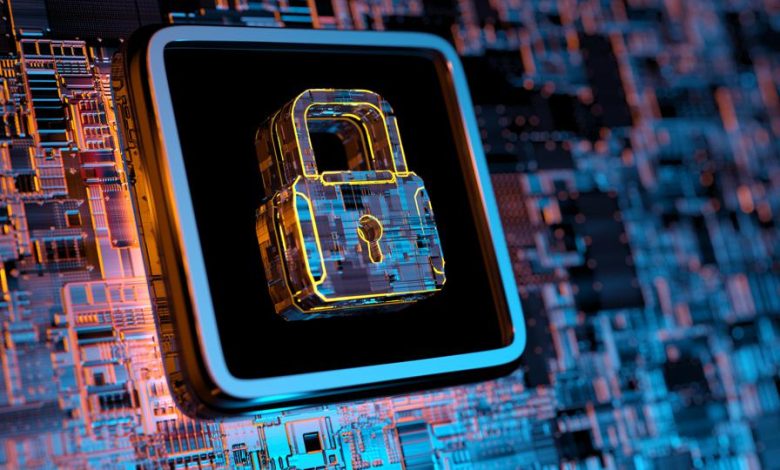5 Wonderful Habits of Successful Cybersecurity Operators That Makes Them Stand Out

The pace at which the cybersecurity landscape is changing is mind-blowing. New cybersecurity threats emerge every day. The unpredictable nature of the job of a cybersecurity analyst makes life difficult on a daily basis. The growing number of devices and applications we use on a daily basis complicates the process even further for cybersecurity professionals. Cyber Criminals are targeting critical business infrastructure to disrupt business continuity. In fact, 31% of organizations have experienced a cyberattack targeting their operational technology infrastructures such as DDoS protected dedicated servers, networks or databases.
How can a business keep its digital assets protected in such a scenario? The answer is by hiring a cybersecurity operator. These cybersecurity operators can not only offer protection against the latest cybersecurity attacks but can also keep cybercriminals at bay. They are extremely efficient at detecting and responding to cybersecurity attacks thanks to cutting edge tools and access to top of line cybersecurity professionals.
If you want to hire the best cybersecurity operators then, you should look at certain qualities and habits they possess. Most successful cybersecurity operators share special characteristics that make them stand in a different league. In this article, AntiDos shares five habits of successful security operators that differentiate them from the rest.
5 Habits of Successful Cybersecurity Operators
These are the five habits that most successful cybersecurity operators have in common.
1. Make Frameworks a Part of Your Daily Routine
A study conducted by Duke University reveals that habits play an important role in influencing our behaviours. In fact, these habits account for 40% of your behaviour. When you apply the same formula to cybersecurity professionals’ daily routine, the number can be even higher. The dynamic nature of the cybersecurity industry forces cybersecurity professionals to continuously learn from industry experts and adapt. Moreover, they should look for ways to implement existing frameworks into their daily routines.
Once you succeed in operationalizing frameworks and make them an integral part of your daily routine, you can block the majority of cyberattacks that exploit a vulnerability in your existing infrastructure. A cybersecurity framework is basically a system that forces you to follow the best practices and guidelines to manage cybersecurity risks.
It not only provides you flexibility but is also cost-effective. Best of all, these frameworks give you an easily repeatable process. This will make your business more resilient to cybersecurity attacks and give you a clear set of guidelines to follow.
2. Take Advantage of Internal Security Signals
There is a saying that goes something like this, “Swimming in data, drowning in wisdom.” If you have been a part of a cybersecurity team, you might be familiar with it. Most enterprise uses dozens of different data sources to give their security and operations centre a clear direction.
Instead of relying on external data sources, you must leverage your internal security signals first. Your cybersecurity team can benefit greatly from that data by using it for threat intelligence. For example, your security team can analyze data from the firewall or DNS to get a clear picture of what’s happening inside the network.
3. Breed a Positive Threat Hunting Culture
Two things that differentiate great cybersecurity teams from average ones is
• They consider cybersecurity as a shared responsibility
• They adopt a proactive approach to cybersecurity
A successful cybersecurity team knows that cybersecurity is a team sport and you can not win at it alone. Additionally, they don’t wait to come under a cybersecurity attack and then react. They actively hunt for threats and make it an integral part of team culture. Allocate some time from the daily schedule for threat hunting. When looking out for threats, think where you are most likely to get targeted. This way, you can prepare for those attacks in a much better way.
4. Actionable Threat Intelligence
Whether you are a mid-sized business or a large scale enterprise, your cybersecurity team don’t have any shortage of threat intelligence. Sadly, all that threat intelligence data is useless until you can extract useful insights from it and make it actionable. The biggest challenge for cybersecurity professionals is how they prioritize threat intelligence information that makes all the difference.
Don’t just rely on manual threat intelligence as humans don’t have the capability to search for threats at many different locations at the same time. That is why you should combine manual threat intelligence with automation for the best results. This will make it easy for you to integrate all the threat intelligence at once place.
5. Learning From Their Past Mistakes
Last but certainly not least is to never make the same mistake again and again. Learn from your past blunders and avoid repeating the same mistakes you have previously made. Once you stop making the same mistakes, your cybersecurity efforts might become more effective at blocking the latest threats. Soon, your defences will become invincible and hackers might find it extremely difficult to get through your defences as they won’t find the same vulnerabilities that let them in.
Conclusion
After reading this article, you might have realized that successful security and operations teams share common traits. Whether it is making cybersecurity frameworks an integral part of your day to day routine or fostering a positive threat hunting culture in your organization, all of these go a long way in making your team successful. What really differentiates successful security and operations teams from average ones is their ability to learn from their mistakes.
Even the best security and operations teams make mistakes but they learn from it and never repeat the same mistakes again and again. They also take full advantage of threat intelligence as well as internal security signals. This helps them identify potential threats early and give them more time to respond to those threats. As a result, they are in a much better position to minimize the risk of these attacks. Your security and operations team can also learn from this and enhance their productivity and efficiency as well.
Which habits do you look for in a security operator when hiring them? Share it with us in the comments section below.






